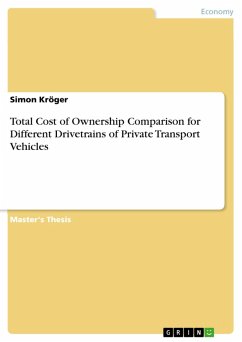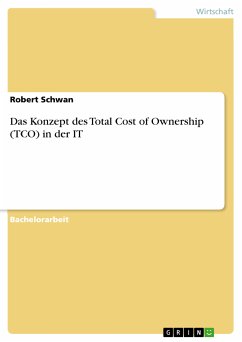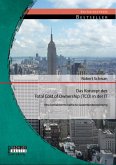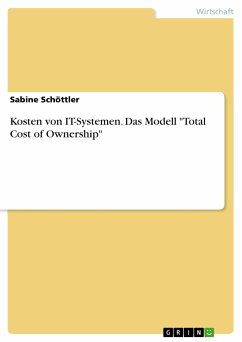Master's Thesis from the year 2020 in the subject Business economics - Accounting and Taxes, grade: 1,0, University of Mannheim (Chair of Business Administration and Accounting), language: English, abstract: Transportation is the source of 25% of the EU-27 greenhouse gas emissions. Specifically, cars are responsible for around 12% of the EU-27 emissions of carbon. Additionally, emissions from the transport sector have increased continuously since 2014. Therefore, the reduction of emissions from the transport sector is an integral element of the EU climate and energy policy to comply with the Paris Agreement. The electrification of the transport sector offers the opportunity to utilize the increasing share of renewable energy generation. Thus, scholars believe that electric vehicles, such as battery electric vehicles (BEVs), plug-in hybrid electric vehicles (PHEVs), hybrid electric vehicles (HEVs), and fuel cell electric vehicles (FCEVs), have the potential to lower emissions and contribute to the transformation of the mobility sector. However, the breakthrough of electric vehicles still faces several barriers. Perhaps the most significant barrier appears to be the public's general consensus that electric drivetrains are more expensive than conventional drives. However, the literature suggests that electric vehicles might already be more cost-efficient than comparable conventional drives. Yet, the cost-benefits are mostly non-transparent to consumers as they put too much weight on the high initial investment costs compared to conventional internal combustion engine vehicles (ICEVs) and underestimate the cost savings through lower operating costs. In order to overcome this misjudgment and to help consumers make more profound purchasing decisions, the literature suggests the total cost of ownership (TCO) approach, which includes both investment and operating costs over the ownership period. This study aims to compare the consumer-oriented TCO for different drivetrains of private transport vehicles in Germany. Although the transportation sector emits 19% of Germany's greenhouse gases, electric vehicles only account for 17% of the newly registered vehicles in the first half of 2020. As a result, the German government approved an increase in subsidies for the purchase of electric vehicles in June 2020 to promote the attractiveness of more environmentally friendly vehicles. Against that background, this study investigates whether conventional drives still exhibit a financial advantage over electric vehicles. For that purpose, this study compares the TCO of BEVs, PHEVs, HEVs, FCEVs as well as petrol and diesel ICEVs.
Dieser Download kann aus rechtlichen Gründen nur mit Rechnungsadresse in A, B, BG, CY, CZ, D, DK, EW, E, FIN, F, GR, HR, H, IRL, I, LT, L, LR, M, NL, PL, P, R, S, SLO, SK ausgeliefert werden.









